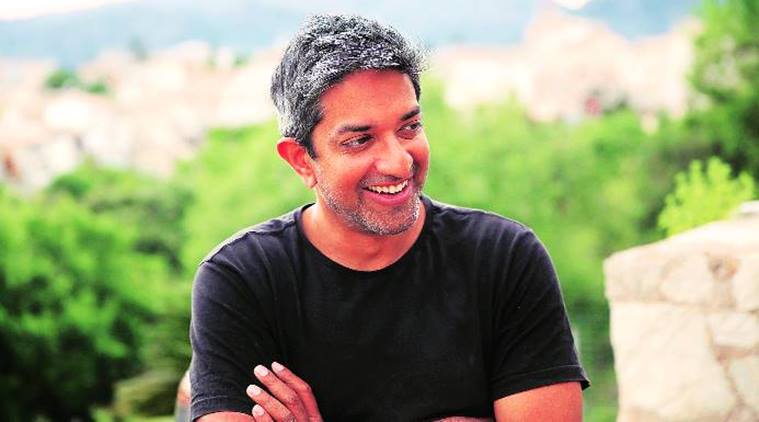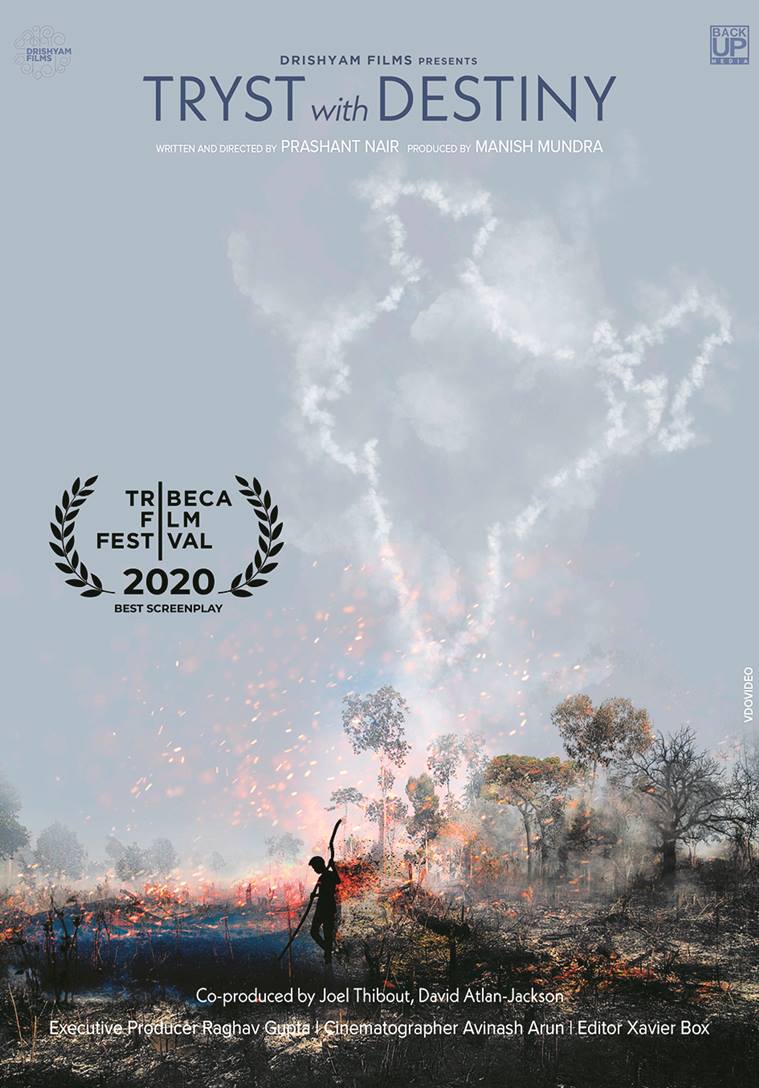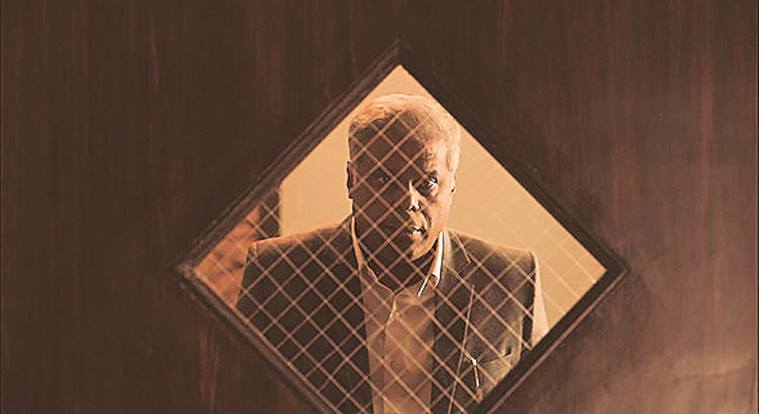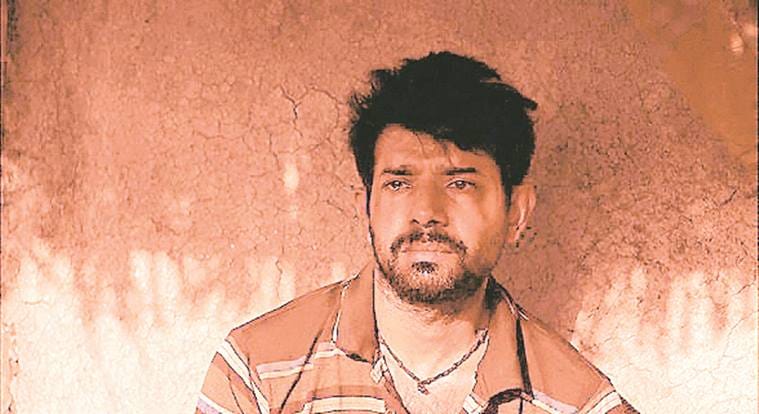 Back to the beginning: An Indo-French production, Tryst with Destiny, is Nair’s third feature film after Delhi in a Day (2012) and Umrika (2015)
Back to the beginning: An Indo-French production, Tryst with Destiny, is Nair’s third feature film after Delhi in a Day (2012) and Umrika (2015)
The conversation begins the way most of them do these days — “hope you’re at home” — with assurances quickly given over the phone call that connects us from Mumbai to Majorca, Spain, where Prashant Nair lives with his wife and daughter. Though the call has been made to congratulate him and talk about his latest film, Tryst with Destiny, which was awarded Best Screenplay by an online jury of the Tribeca Film Festival, shelved because of COVID-19, the mood is more bittersweet than celebratory. “It’s hard to say when anybody will get to watch it. But there are far bigger issues going on, so getting some recognition has been good for the team and for me, because we’re still putting finishing touches on the film,” says Nair.
An Indo-French production, Tryst with Destiny, is Nair’s third feature film after Delhi in a Day (2012) and Umrika (2015), which won the audience award in the International Competition at Sundance Film Festival. An anthology that takes its name from Jawaharlal Nehru’s landmark speech made on the eve of India’s Independence, Nair stitches together three stories that explore aspiration, desire and greed to show us how socio-economic inequalities work at different levels across sections of Indian society. “There’s a billionaire who comes across a problem his money can’t solve; a lower-caste couple in UP attempts to rebuild a new life for their family; and a corrupt city cop whose mistress demands better housing if they have to stay together. As a whole, it is about that contrast, which is what draws me to these stories,” he says.
 The poster of the film.
The poster of the film.
Born in Chandigarh to diplomat parents, Nair was raised in Sudan, Switzerland, Syria, Zambia and Austria; he studied electrical engineering in the US, and, in 2001, he founded a social-media consultancy firm, which he quit to make films. From his very first film about a rich south Delhi family and their domestic workers, to Umrika, where the dream to see the Land of the Free takes hold of a family living in a village, to Tryst… Nair’s engagement with deep-rooted systemic inequalities has been consistent. In 2019, he directed two episodes of Amazon Prime’s Made in Heaven, a show that explored the disparities of gender and class in the north Indian wedding market.
 The cast of his new film Tryst with Destiny
The cast of his new film Tryst with Destiny
“As a filmmaker, I feel responsible to tell certain kinds of stories. The idea for Tryst…came in 2018, when several events that year challenged the secular fabric of the country. As somebody who spent most of his life abroad, explaining India to other people, I always knew that our country has its fair share of problems, but I’ve always been proud of the idea of India, of the secular values it was founded on,” says Nair, who read Nehru’s speech in its entirety around that time.
“He talks about striving towards reducing inequality, and how there would be ‘no resting for any of us until we make all the people of India what destiny intended them to be’. That stayed with me. The stories, some of which are based on real ones, came to my mind as a portrait of who we are as a country right now,” says Nair, who shot the film with an incredible cast consisting of Ashish Vidyarthi, Suhasini Maniratnam, Victor Banerjee, Lillete Dubey, Viineet Kumar, Kani Kusruti, Jaideep Ahlawat and Palomi Ghosh.
 Nair shot the film with an incredible cast consisting of Ashish Vidyarthi, Suhasini Maniratnam, Victor Banerjee, Lillete Dubey, Viineet Kumar, Kani Kusruti, Jaideep Ahlawat and Palomi Ghosh.
Nair shot the film with an incredible cast consisting of Ashish Vidyarthi, Suhasini Maniratnam, Victor Banerjee, Lillete Dubey, Viineet Kumar, Kani Kusruti, Jaideep Ahlawat and Palomi Ghosh.
Initially, Nair wanted to shoot a full-length feature. “The Economist had an article in 2012, where in a survey of a UP district, 41 per cent of upper-caste men thought it was alright to rape lower-caste women. But I didn’t want to just address sexual violence, I wanted to show tenderness as well, so I wrote it as part of the anthology,” he says.
Nair is currently writing, directing and showrunning a web-series based on Shekhar and Neelam Krishnamoorthy’s memoir, Trial by Fire: The Tragic Tale of the Uphaar Fire Tragedy (2016, on the 1997 cinema-hall fire in Delhi). “They lost their two children and embarked on a 20-year-long fight to secure justice. The judicial system is designed to be bureaucratic and inaccessible — it’s designed to wear you down. What’s incredible is that they are still fighting. It’s an important story to tell because the judicial system is the backbone of any country. How do we set rules, how do we respond to them? I wanted to explore that,” he says.